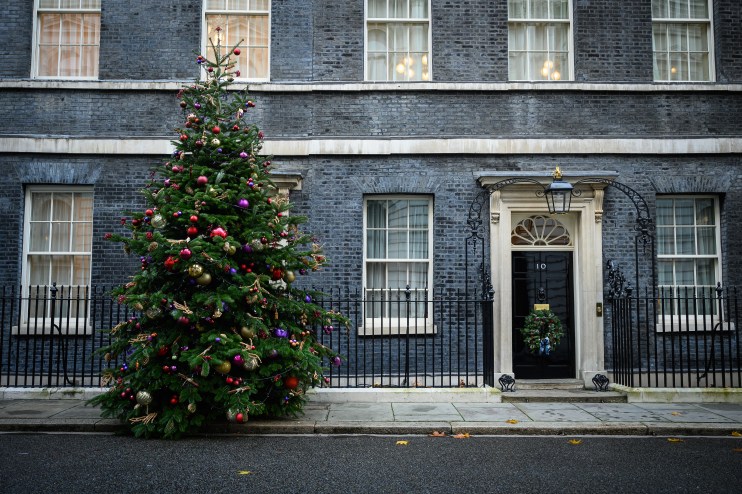Cynics be damned, I love Christmas with all of its festive weirdness

My friends might refer to Christmas trees as carcasses, but I love the cheesy festive cheer of a season we need to keep alive in the hearts of Brits, writes Adam Hawksbee
On the evening of 23rd December 2018, my local Tesco ran out of parsnips. Chaos ensued. No two shoppers passed without exchanges on this existential festive crisis. Tips were shared in hushed tones about root vegetable sightings in a nearby Costcutters. Kids tried to take advantage of distracted adults, dropping additional chocolates and the occasional iPad into the trolley under their noses. Bored dads scrolled through their phones in enforced (and resented) novelty jumpers.
And, I loved every minute of it. After spending the previous six months living abroad, I hadn’t even considered I might be homesick. But walking down those aisles, amid the frenzy, I felt settled – rooted again in an annual routine, with familiar people in a familiar place. If the next few weeks offer anything to a buffeted and bruised public, it may be that grounding sense of a shared experience.
The polls suggest that people might slowly be tiring of Christmas. In December 2000, around eight in ten people said they were looking forward to it. This year, the figure has dropped to seven in ten. That is despite a similar number of people worrying about costs: since the turn of the millennium, around two in five people were concerned about the price of Christmas.
People in my demographic are particularly gloomy about the festive period. Fifty eight per cent of 18-34 year old renters are concerned about the financial hit they’ll take over the holidays. Added to that is a healthy dose of Millennial cynicism. When I told a friend I was looking forward to buying a real Christmas tree, she looked deeply unimpressed. Why would I want something dead in the living room, she asked. It’s basically a carcass.
What unites the costs, decorations, parties and dinners – whether they are begrudged or beloved – is that we do them together every year. Most of us take annual leave over the same couple of weeks. Many return to the towns and homes where we grew up. Each year families cook the same recipes, play the same games, watch the same shows.
In a 2017 book the journalist David Goodhart divided Brits into two tribes: Anywheres and Somewheres. Anywheres, he argued, had an “achieved” identity based on educational or career success. Somewheres had an “ascribed” identity based on where they are from and the groups they belong to. It’s pretty hard to hold on to an achieved identity when wearing a coloured paper crown from a cracker. For a few days, we are all Somewheres.
There are too few of these shared moments. Weddings and baptisms bond families, but are ultimately private occasions. In an increasingly secular country events like Easter play a diminished role. World Cups probably come closest, particularly now our women’s team commands as much support as the mens. But ultimately, even the most globetrotting Anywhere feels the absence of these collective experiences. Among the cliche and commercialism, that’s what Christmas offers – a bit of belonging.
So it can be all the more jarring if the routine is interrupted. When, for the first time, a loved one is no longer around the table. When the town centre pub that hosted the Christmas Eve pint is boarded up. Or last year when we gathered to watch the first Christmas Broadcast from a King since 1951.
But among the change there is always a kernel of continuity; enough familiarity to allow us to settle, a dose of normality when much seems strange. Once a year we get a chance to feel a little more situated in our shared ties – as a family, a community, even a nation.
After a stressful day last week I walked into my flat out of a chilly evening. The smell of pine needles wafted over me as I closed the door. Ah, I smiled. That’ll be the carcass.